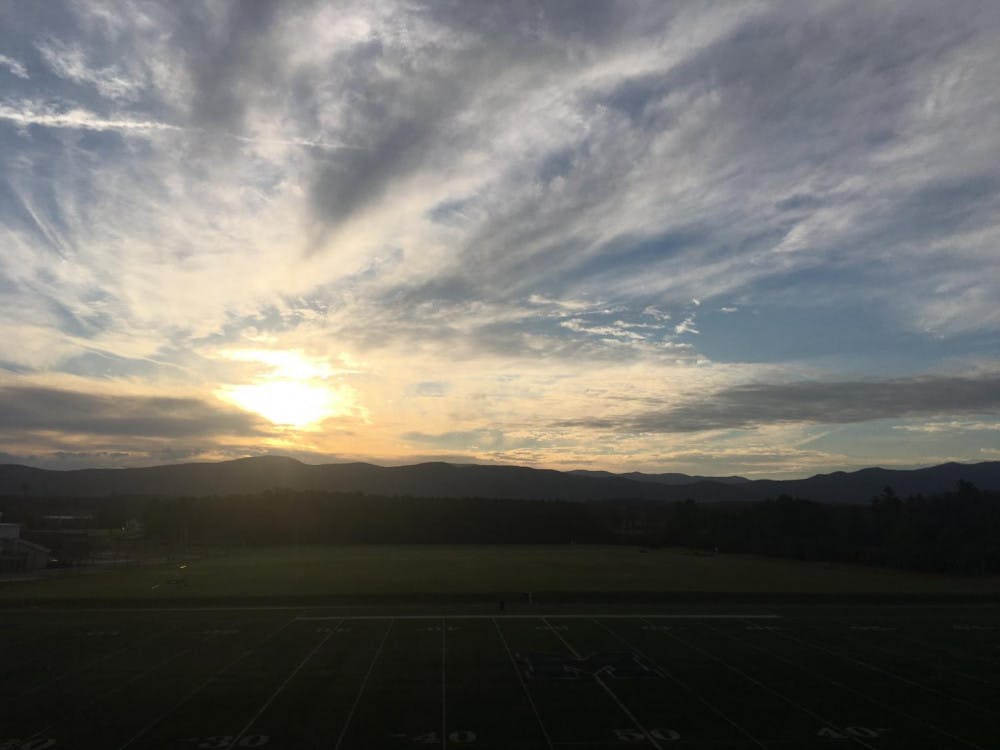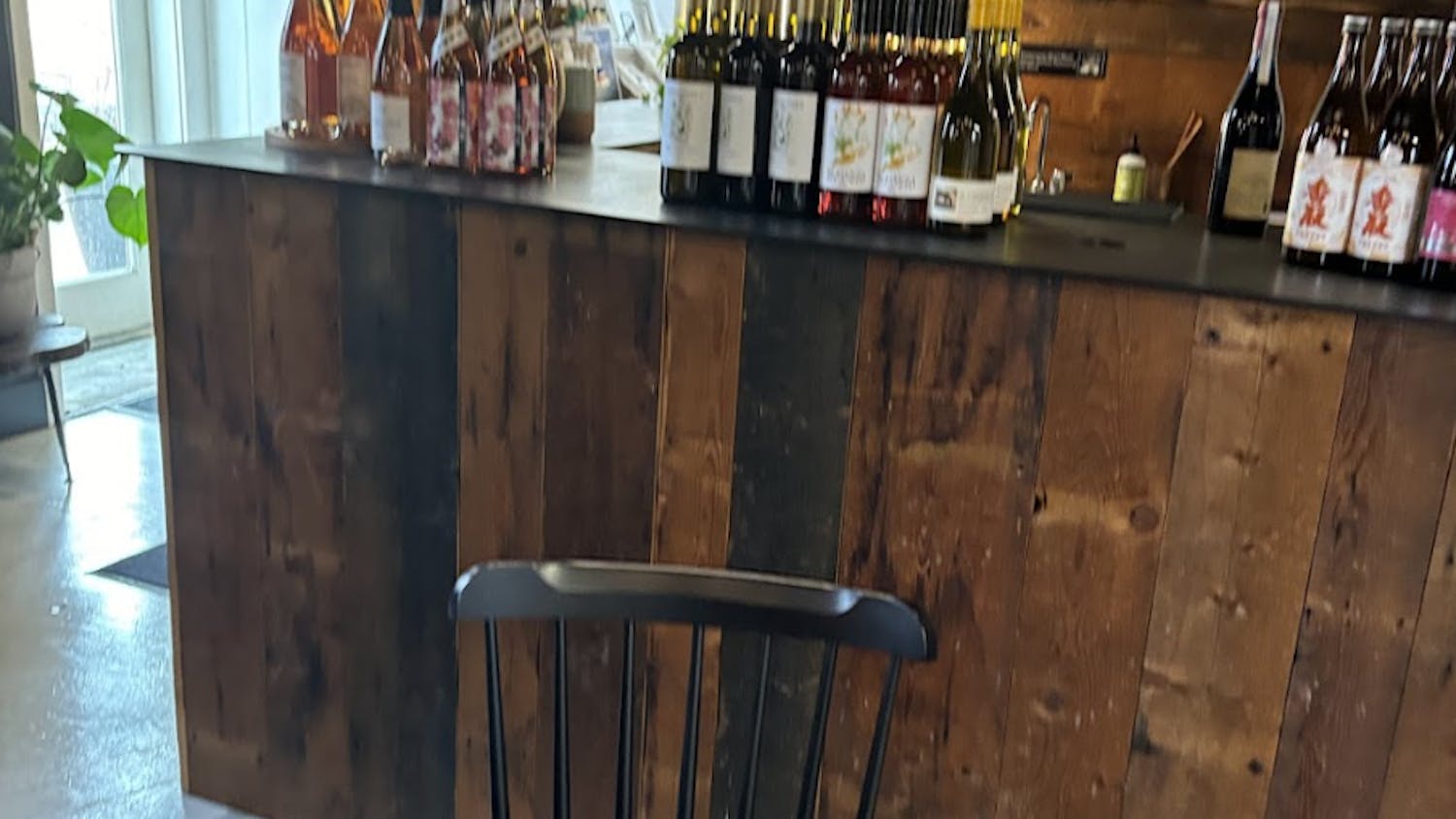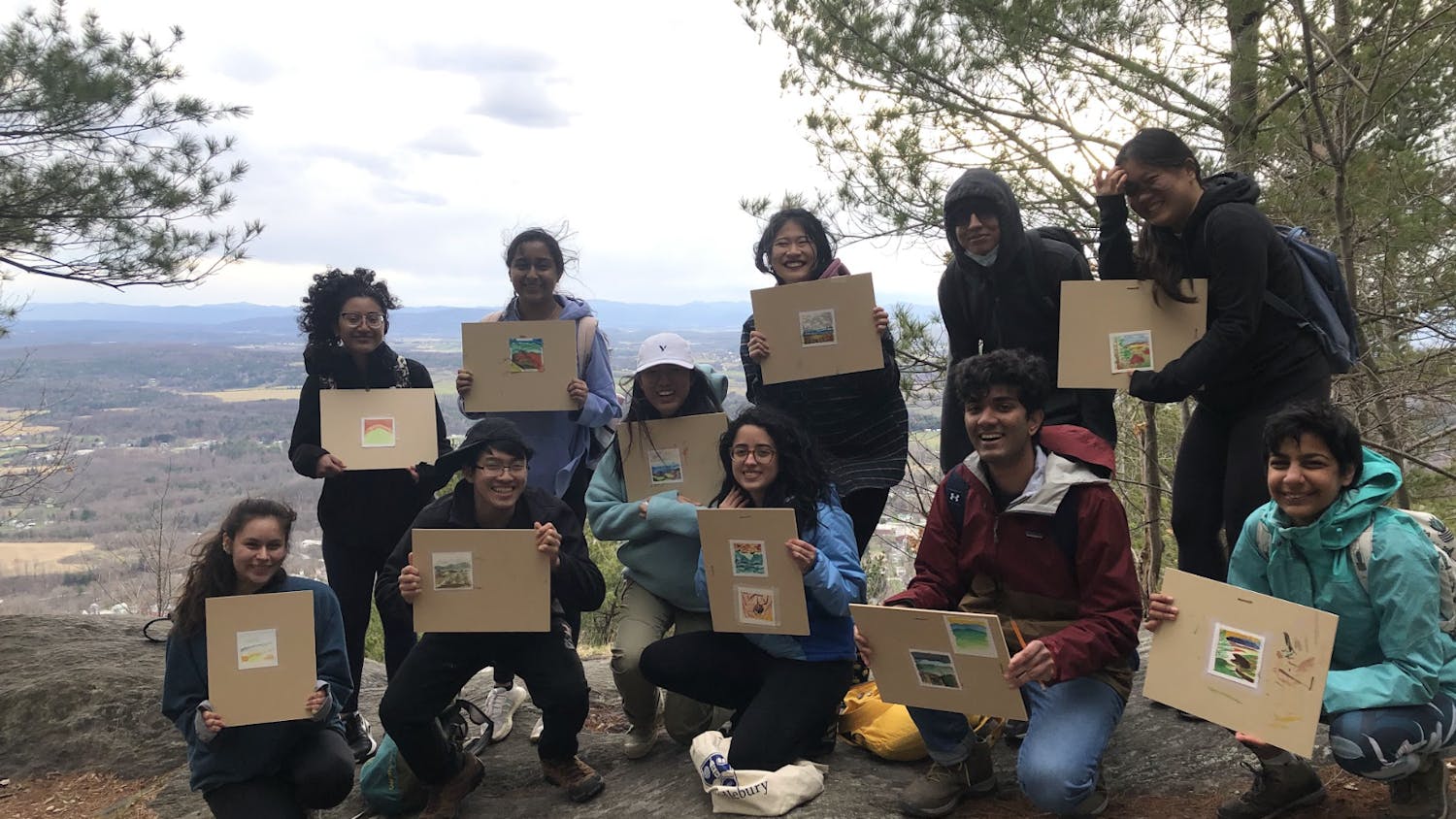This year, Middlebury College officially instituted a land acknowledgement to be read during all official college ceremonies. The statement recognizes that the college sits on land that belonged to the Western Abenaki and calls for the remembrance of the Indigenous community’s “connection to [the] region and the hardships they continue to endure.”
Chief Don Stevens (DS) of the Nulhegan Band of the Coosuk Abenaki Nation sat down for an interview with The Middlebury Campus (MC) to discuss the land acknowledgment and the next steps toward justice.
MC: Could talk a little bit about your perspective on Middlebury College’s land acknowledgment and what is the significance of that statement to you?
DS: I think it's great, and it shows how forward-thinking Middlebury College really is when it comes to not only land acknowledgment but also working with our community by going beyond just acknowledging land. I tell people land acknowledgement is meaningless and hollow if you do a land acknowledgement but then don’t allow Native people access to the lands you hold. Right? Because you’re acknowledging you’re on unseated land or whatever that was the Abenaki but oh — by the way — you can’t access it.
So that's why I'm working with Middlebury College to have access to the lands that they hold to use for collecting Native foods, medicines and maybe interpretive science, or finding other ways to support our food security programs. We do have bison and cattle, so maybe [there is] hay that could come off some of the lands to feed our animals. So the acknowledgement itself is pretty historic because I think that's one of the first colleges that have actually openly made a commitment to not only a land acknowledgement but also actually putting programs in place to work with Indigenous people. I think it's very important that Middlebury is showing that leadership and commitment.
MC: What do you think the land acknowledgement accomplishes, if anything, and what steps does it take toward justice, if any?
DS: Anything that you either apologize for or acknowledge, you can’t build upon something that you haven’t acknowledged as either an issue or something that needs to be corrected. You have to acknowledge a situation to logically and confidently discuss, “What does this really mean?” and, “What does it really mean to do a land acknowledgment?” Is it just words on the paper, or is there something substantially meaningful behind it — knowing that we were oppressed people and others have benefited from the land that we once owned? What kind of position does it put us in, by acknowledging the fact that Midd is on our lands that were taken from us and that we never gave them up willingly? [Acknowledging] the fact that that happened says, “Okay, how do we then build equity? How do we work in partnership?”
European governance is not going away. But neither are Indigenous people. So if you want to right the past, how do you equally share the land for the benefit of both — instead of one using the land at the expense of someone else? So, by Middlebury acknowledging the fact of the land and working toward uplifting our people — like through the language program, through land access, through food security — then you're actually living out what you're talking about in the acknowledgement. I think that's what that means. It means that it's a beginning point to work toward partnering to provide equity.
MC: What are some ways that the land acknowledgement could be improved?
DS: I think that carrying out the spirit of that land acknowledgement can be more. In other words, it's already good that [the college is] working on these programs, and I think having a full-time position at Middlebury College to be able to work on education of the students [could] be a resource — being there to create a Native American student body club for other Native students that may not know other Native students that exist in the college, to create a safe place to practice your culture when you're away from home and be able to build that bond between Native people that might be on campus. And having someone be that mentor to that club, and building a curriculum around Native studies. So, I think there are ways to improve upon the spirit of the acknowledgement that we're working on, because you can't do everything overnight.
MC: What are some of the major challenges you and your communities are facing right now?
DS: We fall into lateral violence. We're the only race that can self-declare. We had to go through a physical legislative process to even be a legal Indian in the United States, and nobody can just say, “I'm Indian” and be covered, you have to be a citizen of a state or federally recognized tribe. So if you're not a citizen of one of those tribes, you're not technically legally an Indian, even though you really are based on the laws of the United States. If you're Indian, you have to have a card in your wallet that declares that you are legally a status-Indian in order to really be protected under the law, which is a shame. That is shameful. But then it creates different statuses. You have federal-status Indians, state-status Indians, and then no-status, who don't have recognition. And then, it puts you in a different class, so some people may think federally recognized is a higher class.
So you have different lateral violence between Native communities, because they set you up in a segregated manner to separate people by class. That to me defies everything the United Nations Declaration on Indigenous Rights have set up. Part of that is that you should be able to self-declare who you are, just like every other race. But the U.S. has adopted that method, so we have to live within the means that have been given to us, so we have a lot of disparities on many fronts.
MC: Have there been any specific challenges relating to Covid-19?
DS: Well, I think the Covid situation has really put collaboration on hold on a personal face-to-face basis. Also, the Covid situation has hit the college hard financially, so it's hard to be able to do new programs and open up new avenues when you've been hit financially.
Overall, it really shows our food insecurities when we have people standing in food lines trying to get food, and that's why I work on our food security programs. People are afraid of the [Covid-19 vaccination] shots [due to] misinformation, or it could be transportation, [or it] could be fear of getting shots [while] other people really want them. So, there's a whole mixed bag, but there's nobody concentrating on educating people on what's causing those disparities. Why are there [fewer] people in our communities being vaccinated than others? We don't know. And that's what really hindered us as well, and it exacerbated the problem.
MC: Is there anything else you are thinking of that might be relevant?
DS: I challenge the students and the faculty to find out what Native pieces are in their world or their circle. [Were] there Native things on the land that Middlebury sits on? Are there gardens that have medicinal and Native spirituality connected to [them]? Are there things in your archives that could help with our historical information on Native people in Vermont or elsewhere? How do we find that information? And how do we get it to paint a bigger picture of actually what involvement Middlebury College has had with Native people over the years?”
I think, overall, I need to say that Middlebury College is doing a great job feeling their way through something they have never had to deal with before and actually being genuine and trying to work with our population — so we have to give kudos to Middlebury for doing that. I also want to say that we should make sure or ensure that we continue this partnership moving forward because it is so important to the diversity of not only the students but also the education piece of it. But there's always work to be done and we don't really know [what that looks like], but I have to say that Middlebury has been on the right path. It takes a lot to turn a big ship right.
Editor's Note: This interview was edited by Local Editor Kenzo Okazaki for brevity and clarity.

Maya Heikkinen '24 (she/her) is a Copy Editor.
She has previously served as an Editor at Large, News editor, copy editor and staff writer. Maya is majoring in Conservation Biology with a minor in Spanish, but is also passionate about writing. She is from Orcas Island, WA, and loves being immersed in forests, running/hiking, gardening, and hanging with plants and cats. In addition to The Campus, she has been involved in SNEG and the currently extinct WildMidd.




